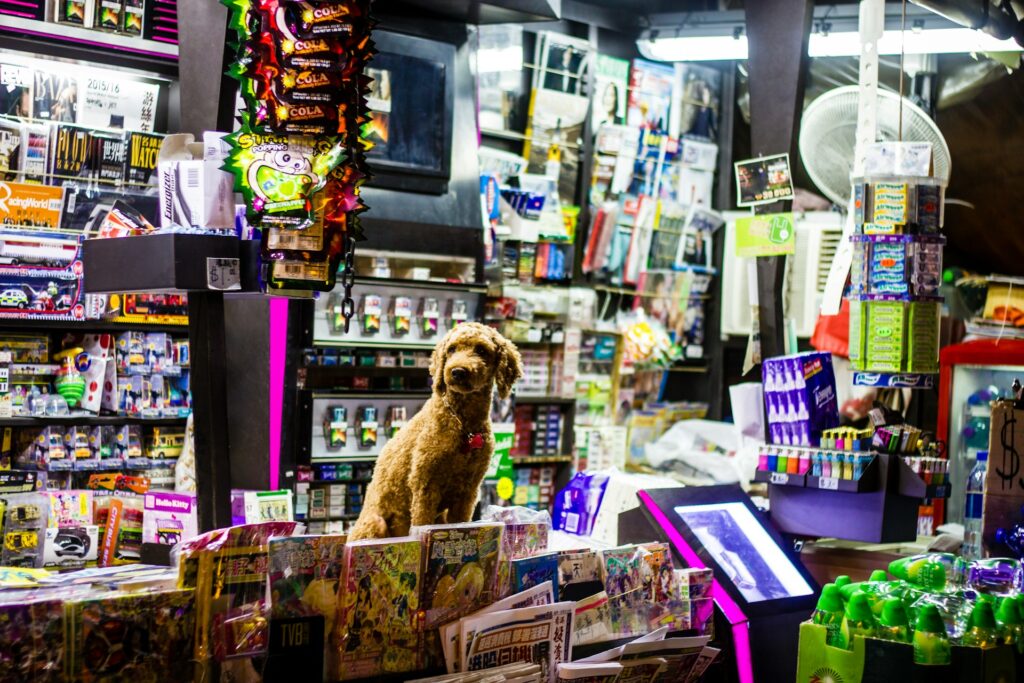Pet shops tested by Supermint – problems found in several places
In the Supermint program, 11 pet shops were inspected by experts from the National Food Chain Safety Office (Nébih). No problems were found that warranted immediate official action, but proceedings were initiated against two shops for the unauthorized distribution of veterinary medicinal products, and measures were taken in 10 shops for other errors and deficiencies. Based on the experiences of the official inspection and the customer-oriented questionnaire survey, only one pet shop ultimately earned the excellent rating.
 Nébih experts visited 11 pet shops across the country. They checked whether the facilities were operating properly and whether they complied with animal protection and animal health rules. Only one shop fully complied with the regulations.
Nébih experts visited 11 pet shops across the country. They checked whether the facilities were operating properly and whether they complied with animal protection and animal health rules. Only one shop fully complied with the regulations.
A typical problem in the shops was the lack or incomplete content of keeping up-to-date records, the mandatory information to be posted and the information to be given to customers, but in four cases the operating license and operating regulations could not be presented on site. The inspectors warned the shops concerned and required them to remedy the deficiencies and correct the errors.
Veterinary medicines can also be purchased in the shops inspected, so the experts also checked compliance with the relevant rules. Problems arose mainly with inventory records and the storage of hazardous waste, but in some places the storage of products was also inadequate. It is a serious mistake that two pet shops did not have the appropriate operating license to distribute veterinary medicines. The official inspectors initiated proceedings against them.
Legislation stipulates what conditions pet shops must provide that are appropriate for the health and well-being of animals. The experts criticized, for example, the uncovered storage of feed for the animals kept in the store in about half of the facilities. Another problem was that in many cases the places where the animals were kept were not cleaned properly, and in many cases the feeders and drinkers used for their care were contaminated.
Related news
From ham to egg dye – comprehensive Nébih inspection continues until Easter
🎧 Hallgasd a cikket: Lejátszás Szünet Folytatás Leállítás Nyelv: Auto…
Read more >What goes on a dog’s plate? Here’s the test of dog salami!
🎧 Hallgasd a cikket: Lejátszás Szünet Folytatás Leállítás Nyelv: Auto…
Read more >AM: from ham to egg dye, comprehensive Nébih inspection is underway until Easter
🎧 Hallgasd a cikket: Lejátszás Szünet Folytatás Leállítás Nyelv: Auto…
Read more >Related news
(HU) Átadták a SIRHA Budapest 2026 Innovációs Termékverseny díjait
🎧 Hallgasd a cikket: Lejátszás Szünet Folytatás Leállítás Nyelv: Auto…
Read more >How does the forint exchange rate affect consumer prices?
🎧 Hallgasd a cikket: Lejátszás Szünet Folytatás Leállítás Nyelv: Auto…
Read more >HELL CITY has arrived, led by Michele Morrone
🎧 Hallgasd a cikket: Lejátszás Szünet Folytatás Leállítás Nyelv: Auto…
Read more >









